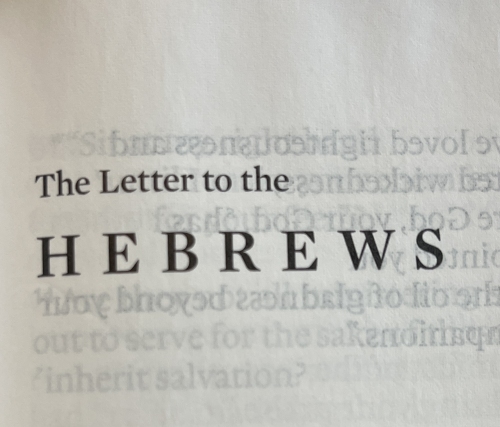To whom much is given, much is required. (Lk 12:35-48)
The OT saints were given the oracles of God and therefore held accountable to them, lest they be punished. NT saints are given the revelation of Jesus Christ and His finished work on the Cross; therefore, NT saints are held to a greater responsibility since we’ve been given so much more!
Jn 5:39-40 [Amplified]
You search and keep on searching and examining the Scriptures because you think that in them you have eternal life; and yet it is those [very Scriptures] that testify about Me; and still you are unwilling to come to Me so that you may have life.
Gal 3:21 [Amplified]
Is the Law then contrary to the promises of God? Certainly not! For if a system of law had been given which could impart life, then righteousness (right standing with God) would actually have been based on law.
Gal 3:22 [Amplified]
But the Scripture has imprisoned [b]everyone [everything—the entire world] under sin, so that [the inheritance, the blessing of salvation] which was promised through faith in Jesus Christ might be given to those who believe [in Him and acknowledge Him as God’s precious Son].
To whom much is given, much is required. (Lk 12:35-48)
The OT saints were given the oracles of God and therefore held accountable to them, lest they be punished. NT saints are given the revelation of Jesus Christ and His finished work on the Cross; therefore, NT saints are held to a greater responsibility since we’ve been given so much more!
Christ’s Preeminence Over the Angels
The character of the messenger provides the test of the importance and finality of his message. Therefore, we ought to listen to Christ’s Gospel much more than anything the angels delivered (e.g., the Mosaic Law).
Heb 10:28-29
Anyone who has set aside the law of Moses dies without mercy on the evidence of two or three witnesses. How much worse punishment, do you think, will be deserved by the one who has trampled underfoot the Son of God, and has profaned the blood of the covenant by which he was sanctified, and has outraged the Spirit of grace?
The Purpose, Plan and Genre of Hebrews
The overarching theme of the Book of Hebrews is parenetic (persuasive). Biblical and theological exposition was subordinate to the writer’s parenetical “word of exhortation”, which was meant to induce an emotional response. It is a homily (sermon), laced with rhetorical language, from a shepherd to a group of well-known sheep for the sake of encouragement. (Heb 13:22; 1:1-4; 1:5-4:16; 5-6; 7:1-10:18; 10:19-13:25)
The Rhetoric in Hebrews
- Prologue: v1:1-4
- Prologue: v1:1-4
- Thematic Statement: v1:5-4:16
- Statement of Plausibility: ch5-6
- Demonstration of Proof: v7:1-10:18
- Closing Inspiration: v10:19-13:25
